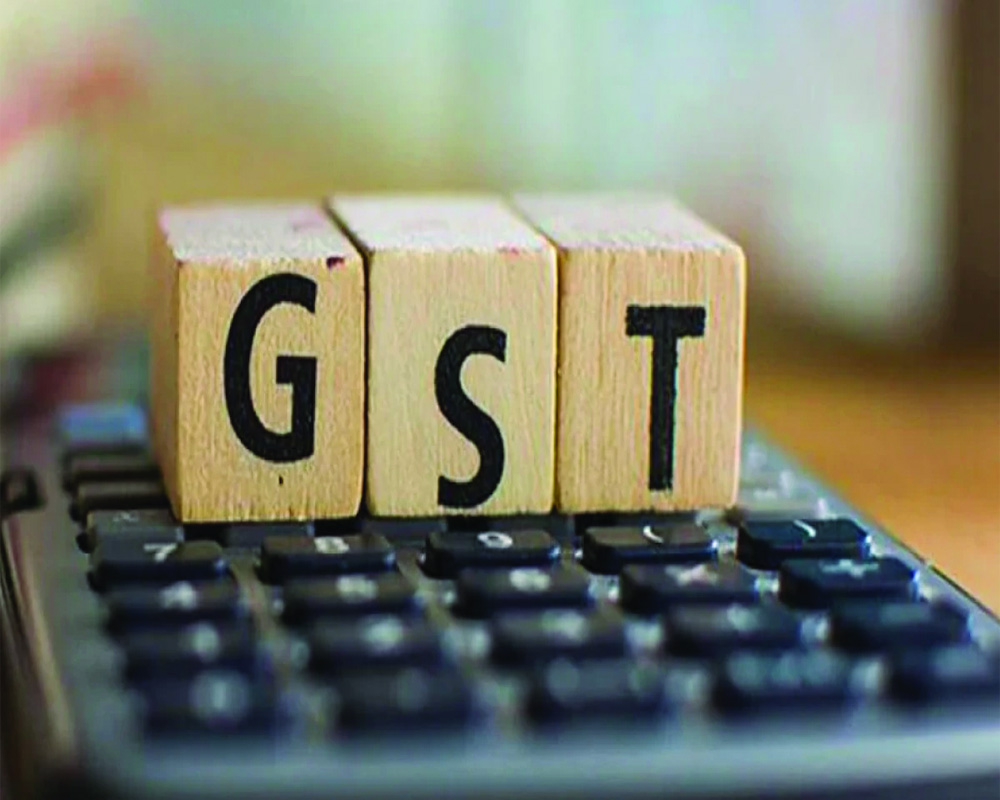The government should reduce GST on cement to 18 per cent from 28 per cent and take some policy measures in the upcoming Budget to boost consumption of this key building material, a senior official of JK Lakshmi Cement said.
In an interview with PTI, Arun Shukla, President and Director of JK Lakshmi Cement, said there is a case to increase cement manufacturing capacity in India to meet the rising demand, which is expected to grow at an average annual rate of 7-8 per cent.
“One of the long-cherished dream, or the wish for us, has been reducing GST on cement,” Shukla told PTI on the sidelines of ‘Bihar Business Connect 2024’ meet held here recently.
In India, cement is taxed at the highest rate of 28 per cent and this needs to be reduced to 18 per cent, he said while replying to a query on the Budget wishlist from the industry.
“Cement is, I would say, one of the major component of driving growth in the economy,” Shukla said, adding that cement is required to build world-class infrastructure that can support the growth of the Indian economy.
He also emphasised on the need to enhance the consumption of cement in India.
“Cement is one of the major drivers of growth, so how we can really increase consumption of cement?” he said.
Shukla said the cement concrete roads have more longevity and in the long run and it is more cost-effective than bitumen roads.
“So my wish would be to really kind of drive this (cement consumption), through maybe some of the policies and specifications...,” he said.
JK Lakshmi Cement, part of the JK Organisation, is investing Rs 500 crore in Bihar to set up a manufacturing plant in Madhubani district.
The Bharat Hari Singhania family-promoted JK Lakshmi Cement had signed a Memorandum of Understanding (MoU) with the state government in 2023 investors’ meet itself for its proposed manufacturing unit.
The company has already acquired land and is in the process of obtaining other approvals to set up the plant.
“We want to cater to local demand from this plant at Madhubani in Bihar,” he said, adding that the plant is expected to be operational within a year.
Shukla complimented the Bihar government for fulfilling its promises, including fiscal incentives, saying “they are really walking the talk”.
About the company’s experience in Bihar so far, Shukla said, “I think the experience has been encouraging, and the very reason I am here for the second time to attend this meeting was to express my gratitude, but to also encourage my other colleagues to set up...”
“The kind of support we have got from all corners, all departments and the bureaucracy in Bihar was amazing. And this is one of perhaps the best experience which we had in setting up a new plant at new location,” he said.
J K Lakshmi Cement has 18 million tonnes of annual capacity.
“We have set a target to reach 30 million tonnes by 2030,” he said.
The 12 million additional capacity expansions across various geographies are on track, Shukla said.
On consolidation in the cement sector, Shukla said, “I think this is a myth. I would say, if you really look at the statistics, top five players have been kind of holding on to about 55-57 per cent of the cement capacity, that situation is still there, it’s not changing much.”
Although cement demand in 2024 was low due to elections and cyclic nature, he said, “going forward, I think we clearly see a CAGR of 7-8 per cent.
“And if you really look at the capacity addition, which is happening is about 5-6 per cent. So still, I think the demand and supply is in favour of adding cement capacity. So consolidation in that way also is not going to impact much,” he said.
The prices go along with the demand and if the demand improves, prices will improve, he quipped.
JK Organisation has overseas manufacturing operations in Mexico, Indonesia, Romania, Belgium, Portugal, and the UAE.
It owns companies such as JK Tyre, JK Paper, JK Fenner, and Umang Dairies besides JK Lakshmi Cement.
Shukla said the JK Organisation is exploring to invest in other sectors as well like tyre and paper manufacturing.
“JK Organization is quite a diversified group. And the objective was to really explore other opportunities as well,” Shukla said, adding that the group will decide on further investments after studying all aspects.


























